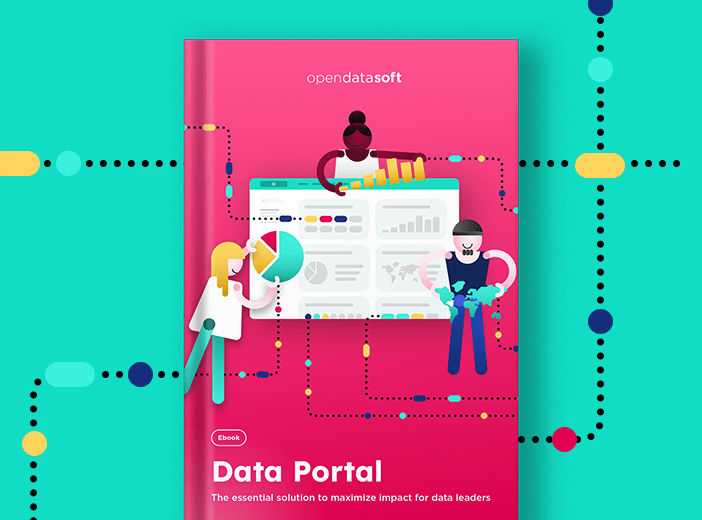Glossary
Data interoperability
Data interoperability is vital in order to foster collaboration, decision-making, and information sharing. Today’s world is characterized not just by an explosion in data volumes, but by the multitude of formats and types of data processed by organizations. This complexity makes it more complicated to exploit and share data both internally and with external stakeholders. Companies therefore need to focus on ensuring data interoperability.
What is data interoperability?
Data interoperability is the ability of computer systems to exchange and use data smoothly, even if they are based on different formats, structures, or standards. If data is considered the oil of today’s economy, its volume and differences make its exploitation particularly difficult. To seamlessly connect data, it is necessary to standardize its format, vocabulary, and metadata. This makes data more easily readable and understandable by all.
How to ensure data interoperability?
Creating data interoperability starts with defining effective data governance. The objective is to establish a framework that promotes the quality, reliability, and security of data.
There are four essential steps to enable optimal interoperability between different data assets:
- Appointment of a data steward: responsible for defining all governance rules and ensuring their proper application.
- Definition of metadata: providing context to data to help integrate it.
- Adoption of a standardized vocabulary: ensuring it is understandable and used by all.
- Data formatting: using open, standard, or widely used file formats that promote interoperability. This allows data to be used by all types of tools.
How does data interoperability benefit organizations?
It streamlines interdisciplinary collaboration
Organizational silos form when different business units or departments of a company operate independently, with separate, often incompatible, systems and data flows.
This compartmentalization can lead to data interoperability issues for several reasons:
- Data becomes inaccessible as it is scattered across multiple services, on different tools.
- Data presents inconsistency issues because each silo uses its own format and standards, resulting in integration incompatibilities and duplication of data.
It is therefore essential to make data interoperable: accessible, understandable by all regardless of their technical skills, and readable by all types of tools.
Enhancing data sharing
Interoperability should also promote data sharing with a wider audience: customers, partners, suppliers, media, the general public, etc.
To achieve this, it is essential to use data portals that are compatible with an organization’s technological stack.
For example, the city of Rouen promotes data interoperability through its open data portal developed on the Opendatasoft solution in partnership with Isogeo. This partnership has facilitated data connections through features such as scanning, connectors, processors, and widgets on the Opendatasoft platform.
Improving decision-making
By allowing datasets to be connected with each other (or integrate with other tools), interoperability enables organizations to significantly enrich their data. More reliable and relevant data enables better decision-making, whether it’s identifying new trends, anticipating risks, seizing opportunities, or creating new services.
By fostering the sharing, accessibility, and cross-referencing of data, interoperability contributes fully to data democratization.
Data portals delivering data interoperability
Data portals promote data interoperability by acting as centralized gateways for collecting, storing, and sharing data among various sources and users. Their user-friendly interfaces and advanced features for data aggregation, normalization, and dissemination, greatly facilitate access to information while ensuring compatibility.
By simplifying data management and exchange, data portals strengthen interoperability and foster more effective collaboration among stakeholders.
Learn more
 Ebook
Ebook
Data Portal: The essential solution to maximize impact for data leaders
All organizations understand the vital importance of data to success. In a world full of data, easy and rapid access to the right datasets, in the right format, at the right time is crucial to decision-making, efficiency, collaboration, innovation and transparency. It decreases costs, builds new revenue streams, and mitigates risk. This ebook provides a comprehensive introduction to data portals at both a strategic and tactical level. It aims to help you embrace data democratization and unlock the value of your data.

Delivering AI success through seamless access to actionable and machine readable data
High quality data is at the heart of successfully training and deploying AI algorithms and agents. Our blog explains how organizations can ensure that they are sharing easily actionable, machine readable data with AI through data products and data product marketplaces
